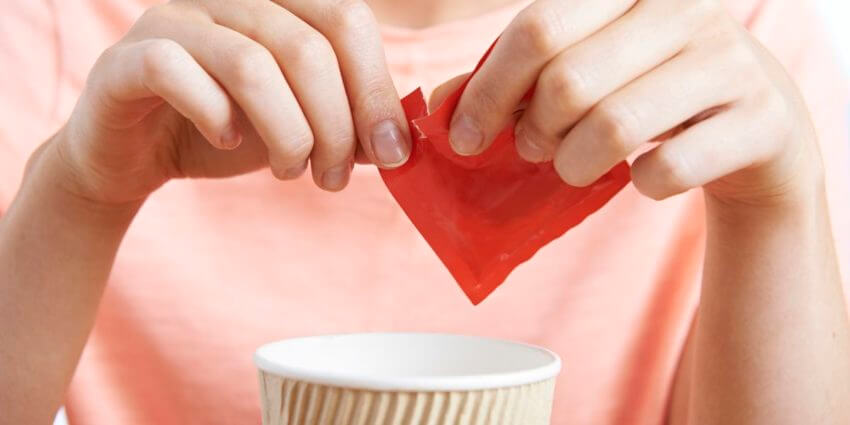Eliminating sugar from the diet is very important for gut health, especially when trying to get rid of SIBO and intestinal candida overgrowth. However, using Splenda (the artificial sweetener sucralose) is almost guaranteed to take make matters worse. The use of Splenda can significantly alter the gut’s microbiota, both negatively impacting beneficial bacteria and causing an increase in pathogenic bacteria. It also increases the pH of the colon which is known to lead to disease from pathogenic overgrowth.
Rather than using any of the artificial sweeteners, it is currently recommended to use a pure form Stevia (not just ground stevia leaf you often find in grocery stores). It should be very near 90% total steviol glycosides, about 40% Rebaudioside-A and contain no xylitol or other sugar alcohols. BulkSupplements makes one like this, as does Nature’s Candy.
“Evidence indicates that a 12-wk administration of Splenda exerted numerous adverse effects, including (1) reduction in beneficial fecal microflora, (2) increased fecal pH, and (3) enhanced expression levels of P-gp, CYP3A4, and CYP2D1, which are known to limit the bioavailability of orally administered drugs.” — PubMed #18800291
“In rats, sucralose alters the microbial composition in the gastrointestinal tract (GIT), with relatively greater reduction in beneficial bacteria. Although early studies asserted that sucralose passes through the GIT unchanged, subsequent analysis suggested that some of the ingested sweetener is metabolized in the GIT, as indicated by multiple peaks found in thin-layer radiochromatographic profiles of methanolic fecal extracts after oral sucralose administration. The identity and safety profile of these putative sucralose metabolites are not known at this time. Sucralose and one of its hydrolysis products were found to be mutagenic at elevated concentrations in several testing methods… Both human and rodent studies demonstrated that sucralose may alter glucose, insulin, and glucagon-like peptide 1 (GLP-1) levels. Taken together, these findings indicate that sucralose is not a biologically inert compound.” — PubMed #24219506
“An overall reduction of the existing microflora was found (≥50%) at sucralose doses that were lower than the human ADI. Beneficial bacteria including lactobacilli and bifidobacteria were disproportionately affected compared to pathogenic bacteria including enterobacteria. Further, the reduction in fecal microflora was not fully reversible even 3 mo after cessation of sucralose.” — PubMed #PMC3856475
“the magnitude of the decrease in bacterial counts from Splenda is similar to or greater than the magnitude of the increase in probiotic bacteria (e.g. Lactobacillus and Bifidobacterium) that have been reported to produce significant health benefits through a variety of mechanisms” — “Sucralose revisited: Rebuttal of two papers about Splenda safety”
The Gut Health Protocol has much more on this topic and includes information on other sweeteners and ingredients.
All images posted by John Herron are either "Copyrighted John Herron", or are copyrighted by someone else and are used under license. So please don’t use them elsewhere, you’ll get in trouble.


 Phage Complete comes with a full 30 day money back guarantee, for U.S. purchases this includes the original shipping charges to you!
Phage Complete comes with a full 30 day money back guarantee, for U.S. purchases this includes the original shipping charges to you!